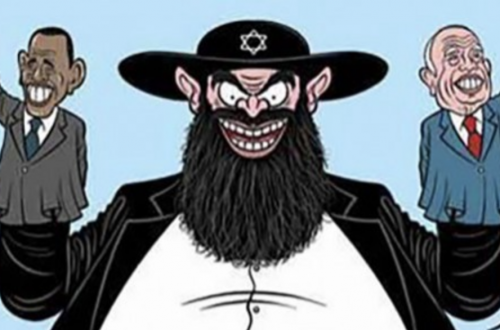
In September 2001 at the global conference against racism in Durban there was a campaign to construct Zionism as the key racism on the planet. Opposition to antisemitism was presented as incompatible with opposition to racism. Jews were said to be white, Israel racist, and both were constructed as enemies of antiracism. 9/11 followed a week later and the peace process collapsed at the end of that year.
A number of Jewish NGOs pushed back against the splitting of antiracism from anti-antisemitism. They wanted left wing, pro-Palestinian and Jihadi antisemitism to be taken as seriously as that from the right and the fascists. The Jewish NGOs won a hearing within the OSCE (Organisation for Security and Co-Operation in Europe) and the EU (European Union) but not within the UN (United Nations).
They drafted a definition which could help monitor and oppose antisemitism, especially in the newly democratic countries of Europe. This was eventually adopted by the IHRA (International Holocaust Remembrance Alliance), the British Government and the US State Department.
Sometimes the IHRA definition is criticized for being political. But in the world as it is, how could a definition of antisemitism be anything else? The point is what are its politics? And what are the politics of those who denounce it?
In such a contested realm, no definition could substitute for political judgment. There can be no app for your phone to tell you what is antisemitic. The IHRA definition offers a framework which can be helpful in making an informed judgement.
It offers examples of things which may be considered, depending on context, to be antisemitic. It says that denying Jewish self-determination may be antisemtic if it is claimed that any state of Israel would necessarily be a racist endeavour. It says that it may be right in some contexts to judge that comparing Israeli policy to that of the Nazis is antisemitic. It offers less controversial examples too. And then it emphasises the point that ‘criticism of Israel similar to that levelled against any other country cannot be regarded as antisemitic’.
Opponents of the definition say that some of the things they want to do, like denouncing Israelis as Nazis, and treating people they say are Zionists as one would treat racists, are deemed antisemitic under the definition. They say that even though the definition is clear that criticism of Israel is legitimate, it does not really mean it. They imply that even within the definition of antisemitism itself, the Jews are up to something sinister.
In April 2009, President Ahmadinejad made an antisemitic speech at the UN. Seumas Milne, now a key advisor to Jeremy Corbyn, denounced those states which protested against the speech by walking out, in the following terms: ‘what credibility is there in Geneva’s all-white boycott?’ Milne was pushing the Durban understanding that opposition to left or Jihadi antisemitism was likely to be a kind of white supremacism, perpetrated by the powerful and functioning to silence the voice of the oppressed.
You don’t have to treat the IHRA definition as holy to be angry about Labour’s disavowal. People are angry because Labour is sacrificing its antiracist tradition to legitimize those of its members and allies who want to do things which the definition warns against. Labour doesn’t like the definition because it is a political definition which describes and opposes political antisemitism.
The biggest specific problem with Labour’s homemade definition is that it declares that hostility to Israel could only be antisemitic if motivated by antisemitic intent. This is a radical break from everything which is accepted in the scholarly study of racism and in antiracist practice.


